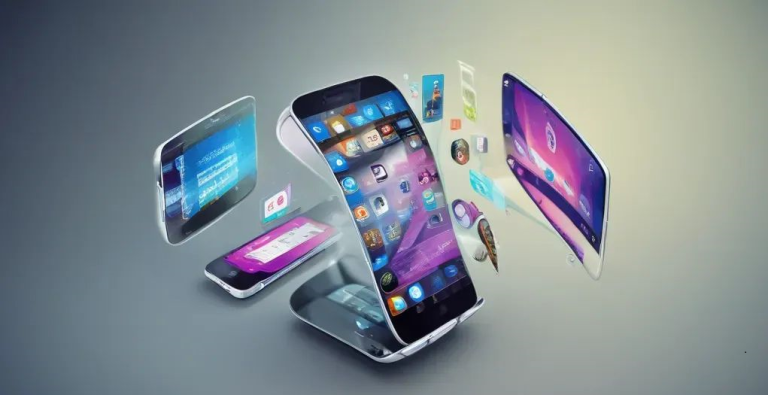
Over the years, mobile phones have transformed from simple means of communication to multipurpose devices that are an integral part of our everyday life. Technological developments, shifting consumer tastes, and new fashions are all factors that will continue to shape the mobile environment in the years to come. Here we take a look at what the mobile industry has in store for the future by analyzing the trends and technologies that will define the gadgets of the future.
UNLEASHING THE POWER OF HYPERCONNECTIVITY WITH 5G CONNECTIVITY
The extensive implementation of 5G connection is a game-changer for the mobile industry’s future. With the advent of 5G networks comes the promise of a plethora of game-changing apps and services made possible by more capacity, less latency, and higher data rates. 5G will allow mobile users to enjoy augmented reality (AR) experiences, live multiplayer gaming, and flawless streaming of high-definition material. Also, new capabilities like driverless vehicles, smart infrastructure, and remote surgery will be made possible by 5G technology, which is going to change the game in transportation, healthcare, and manufacturing.
CHANGING FORM FACTORS AND USER EXPERIENCES WITH FOLDABLE AND FLEXIBLE DISPLAYS
The next generation of mobile gadgets could look very different thanks to innovations in foldable and flexible displays. These cutting-edge screens let smartphones to convert into either larger or smaller screens, giving consumers more options and making their devices more convenient to use. The possibilities of this technology are shown by foldable phones such as the Huawei Mate X and the Samsung Galaxy Z Fold, which allow users to effortlessly switch between smartphone and tablet modes. We could expect to see foldable and flexible screens becoming commonplace in future mobile devices as their price points and availability drop.
AI-POWERED CUSTOMIZATION: IMPROVING EFFICIENCY AND USER EXPERIENCES
In order to provide consumers with more tailored and contextually aware experiences, artificial intelligence (AI) is becoming an integral part of mobile’s future. Algorithms powered by artificial intelligence study user actions, tastes, and habits to provide personalized suggestions, forecasts, and proactive support. Artificial intelligence (AI) is the backbone of virtual assistants such as Amazon Alexa, Google Assistant, and Siri. These assistants can comprehend and carry out human requests, queries, and tasks by means of natural language. Mobile devices driven by artificial intelligence will continue to advance in the future, becoming more intuitive and predictive as they work in tandem with users to improve their efficiency, comfort, and happiness.
THE SAFETY AND CONVENIENCE OF BIOMETRIC AUTHENTICATION FOR USERS
The use of biometric authentication technologies like iris scanning, fingerprint scanning, and face recognition is on the rise in mobile devices as a safer substitute for passwords and PINs. With these biometric technologies, users can unlock their devices, verify transactions, and access critical information with just a glimpse or touch, providing greater security and convenience. Improvements in sensor technology and AI algorithms are likely to make biometric authentication even more reliable and secure in the future, leading to its widespread use.
CONCLUSION:
Quick innovation, new technologies, and changing customer expectations will define the mobile industry in the future. The upcoming crop of mobile devices is expected to bring a slew of exciting new features and improvements, such as 5G connection, foldable screens, AI-powered customization, and biometric identification, among many others. Staying connected, informed, and productive in an increasingly digital environment is made easier with the ever-evolving mobile technology. It’s already reshaping industries and driving new forms of communication and engagement.